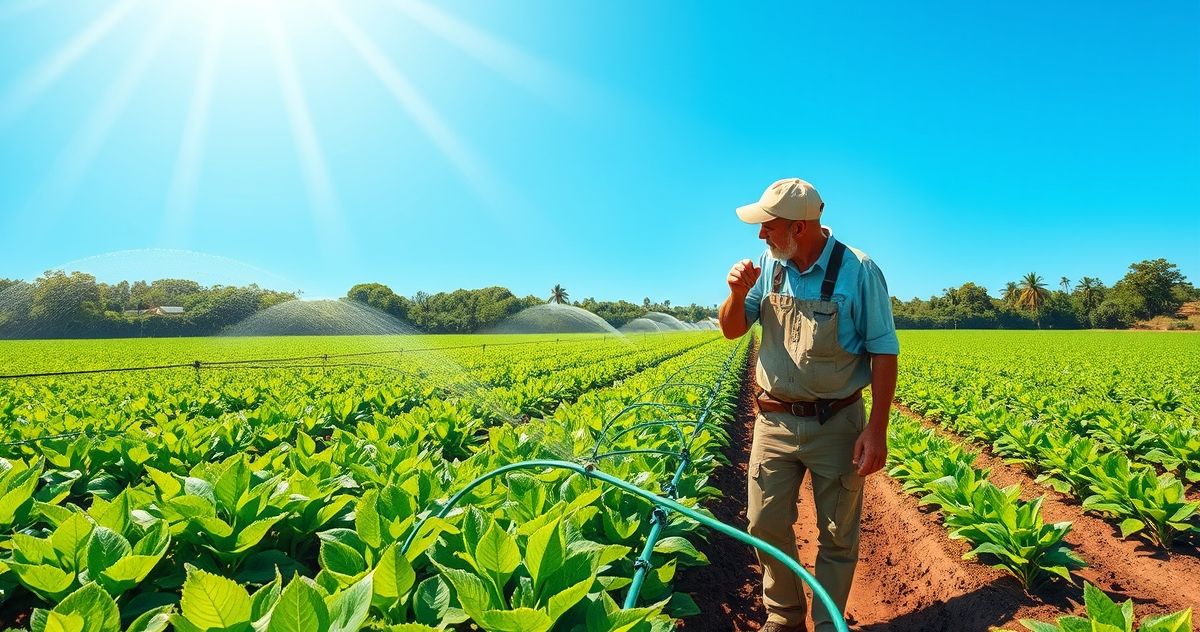Agricultural Irrigation Tax Credit: A Comprehensive Guide
The Agricultural Irrigation Tax Credit is a pivotal financial tool aimed at encouraging sustainable water use practices in the agricultural sector. As global water resources face increasing strains from climate change and population growth, efficient irrigation becomes a critical component of sustainable farming. This tax credit serves not only as a financial boon to enable farmers to afford irrigation improvements but also as a strategic step towards resource conservation and better environmental stewardship.
What Is the Agricultural Irrigation Tax Credit and Its Primary Purpose?
This tax credit is a governmental financial incentive designed to promote the use of advanced, efficient irrigation systems in agriculture. By offering a credit for adopting new irrigation technologies, the government aims to mitigate water wastage and improve agricultural water management. The primary goal is to encourage farmers to invest in technologies that reduce water consumption while maintaining or increasing crop yield, thus ensuring higher efficiency and sustainability in agricultural practices.
Key Features or Components of the Credit
The Agricultural Irrigation Tax Credit includes several key features that farmers and agricultural businesses should be aware of:
- Eligibility Criteria: Farmers, landowners, or tenants engaged in agricultural production may qualify for this credit. Eligibility often includes parameters such as the type of crops grown and geographical location.
- Qualifying Expenses: Expenses that typically qualify include costs associated with the purchase and installation of water-saving irrigation systems, including drip systems, advanced sprinklers, and related technologies.
- Percentage or Amount of Credit: The tax credit usually covers a certain percentage of the costs incurred in improving irrigation systems. This percentage can vary based on jurisdiction and specific program guidelines.
- Carryover Provisions: In some cases, if the tax credit exceeds a farmer’s tax liability for the year in which the expenses were incurred, it can be carried forward to subsequent fiscal years.
Relevant Filing or Compliance Requirements
To claim the Agricultural Irrigation Tax Credit, farmers must adhere to specific filing requirements:
- Documentation: Detailed records of all qualifying expenses must be maintained. This includes invoices, proof of payment, and any certification stating the efficiency of the installed irrigation equipment.
- Tax Forms: Specific tax forms or schedules need to be completed, which clearly itemize the expenses incurred and tax credit claimed.
- Deadlines: It is crucial to align the filing of the tax credit with regular tax return schedules to ensure timely processing and compliance.
Failure to provide comprehensive documentation can delay or even nullify the benefits of the tax credit.
Penalties or Consequences for Non-compliance
Non-compliance with the Agricultural Irrigation Tax Credit requirements can result in several adverse outcomes:
- Forfeiture of Credit: Inadequate documentation or incorrect application forms can lead to forfeiture of the credit.
- Audits: Misreporting expenses may trigger audits, leading to increased scrutiny and potential penalties.
- Financial Penalties: Failing to comply with the terms set forth by tax authorities often results in financial penalties and interest on unpaid taxes.
Importance and Significance in Tax Resolution and Financial Compliance
Understanding and utilizing the Agricultural Irrigation Tax Credit can have several benefits:
- Cost Reduction: By offsetting the costs of irrigation upgrades, farmers can significantly reduce their tax burden, freeing up capital for other vital operations.
- Environmental Stewardship: Encouraging modern irrigation techniques fosters water conservation efforts and enhances a farm’s sustainability credentials.
- Compliance and Risk Management: Accurately claiming this credit reduces exposure to tax compliance risks, such as audits or penalties.
For agricultural businesses, engaging with this tax credit not only improves financial health by reducing tax liabilities but also demonstrates a commitment to sustainable farming practices.
Conclusion
The Agricultural Irrigation Tax Credit exemplifies how fiscal policy can drive positive environmental change in agriculture. By encouraging the adoption of water-efficient technologies, this tax credit supports resource sustainability and economic efficiency. Farmers who understand and leverage this credit enhance their operational viability while contributing to broader conservation goals. Staying informed about eligibility, documentation, and filing requirements is vital to maximizing the potential benefits of this crucial agricultural incentive.

